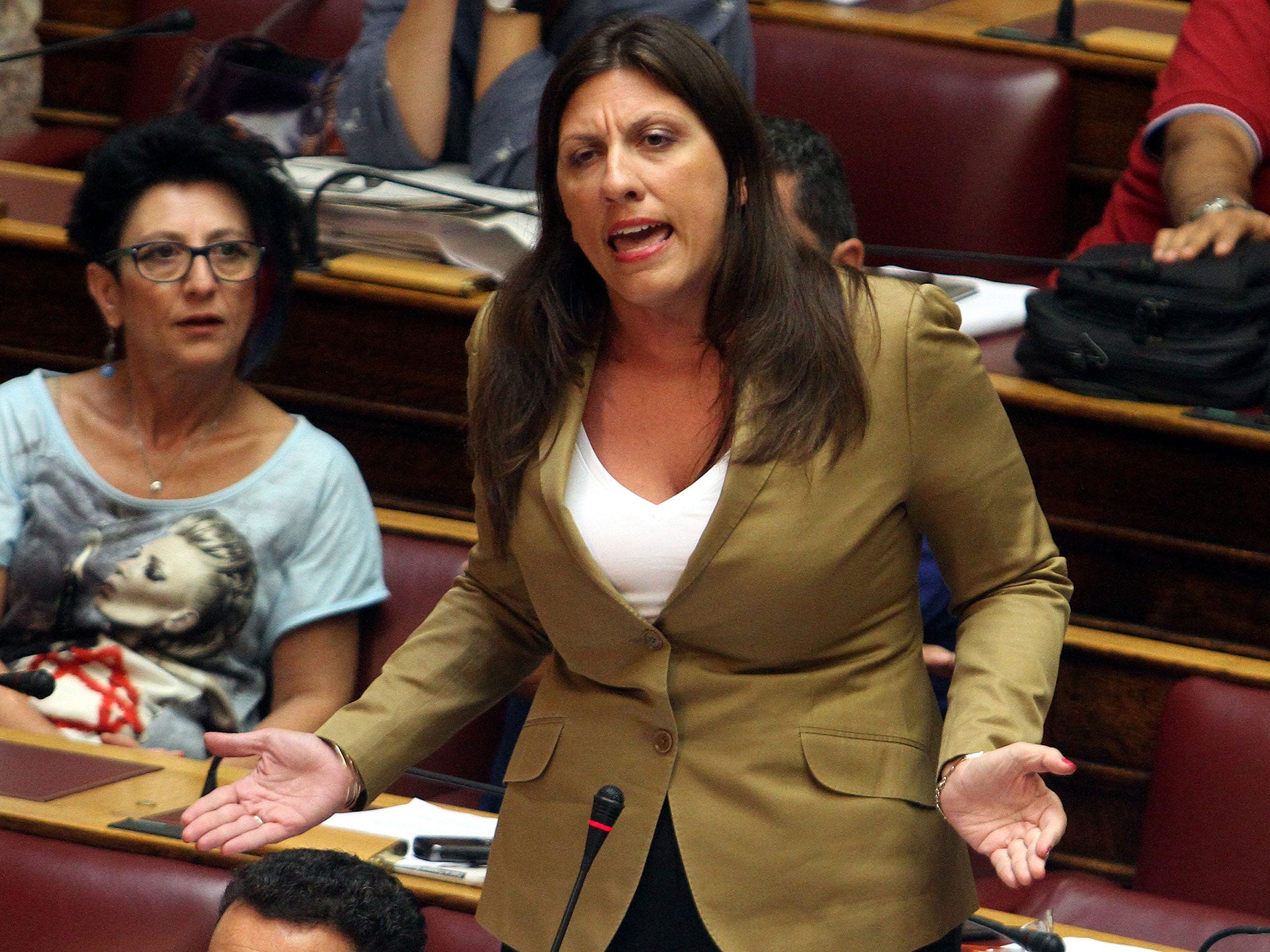Greece debt crisis: Parliament holds emergency session on new austerity measures to secure third bailout
Meanwhile, the country has registered 0.8 per cent growth which economists have attributed to retail sales and tourism

Your support helps us to tell the story
From reproductive rights to climate change to Big Tech, The Independent is on the ground when the story is developing. Whether it's investigating the financials of Elon Musk's pro-Trump PAC or producing our latest documentary, 'The A Word', which shines a light on the American women fighting for reproductive rights, we know how important it is to parse out the facts from the messaging.
At such a critical moment in US history, we need reporters on the ground. Your donation allows us to keep sending journalists to speak to both sides of the story.
The Independent is trusted by Americans across the entire political spectrum. And unlike many other quality news outlets, we choose not to lock Americans out of our reporting and analysis with paywalls. We believe quality journalism should be available to everyone, paid for by those who can afford it.
Your support makes all the difference.Greece’s parliament has held an emergency session on new austerity measures to secure a third bailout, as unexpected positive news came in the form of 0.8 per cent growth in the second quarter of the year.
Prime Minister Alexis Tsipras is expected to be forced to rely on opposition votes to pass the Bill for the three-year €85bn (£61bn) package through a parliamentary vote, as he continues to face major dissent within his own party.
Thirteen Syriza MPs this week said they would form a rival anti-bailout movement.
Politicians joined Panagiotis Lafazanis, the former energy minister, to oppose the government’s support for austerity just weeks after the majority of the country voted “no” in a referendum on similar measures.
“We call on the formation of a broad and nationwide political and social movement to create committees to struggle against the new [bailout], austerity and the colonisation of the country,” their announcement read.
The divide within the left-wing party is so deep that a senior Syriza official told The Independent that the government could call snap elections in less than two months.
Eurozone finance ministers are expected to meet on Friday to sanction the Greek bailout deal before it gets approval from several parliaments across Europe, including Germany.
In some rare positive news, the country’s statistical body said the nation had registered a 0.8 per cent growth in the April to June period. Economists attributed the growth to retail sales – as Greeks rushed to spend their euros on fears the currency would be returned to the drachma – and tourism, with the debt-strapped country benefiting from unrest in the Middle East and Turkey.
But analysts also warned that the growth would be short-lived. “This expansion is not likely to last. With capital controls in place, more austerity measures to come as part of a third bailout and the real prospect of a snap election, Greece should see its economy contract by as much as 3 per cent for 2015,” Megan Greene, chief economist at Manulife said.
Join our commenting forum
Join thought-provoking conversations, follow other Independent readers and see their replies
Comments